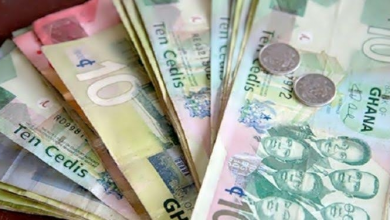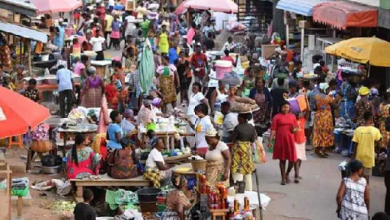COCOA BEANS TO ATTRACT ADDITIONAL $400 FROM 2020/21 SEASON
From the 2020/21 cocoa season, every tonne of cocoa beans from Ghana and Cote d’Ivoire that will be sold on the international market will attract an additional $400 as a living income differential.

The amount will be paid by buyers of cocoa from the two countries, in line with a new pricing mechanism that aims to protect farmers’ incomes, while giving the world’s top cocoa growers a bigger say in how much their produce is sold for, the Chief Executive Officer of the Ghana Cocoa Board (COCOBOD), Mr Joseph Boahen Aidoo, has told us.
Speaking from Abidjan, the capital of Cote d’Ivoire, where he led Ghana’s delegation on a stakeholder discussion on cocoa farmer incomes, Mr Aidoo said the $400 living income differential would then be added to the prevailing price of the crop, of which 70 per cent would be paid to the farmer at the farm gate.
“For instance, today, the price is $2,300. So $400 will be added to make it $2,700 and 70 per cent of the total will be paid to the farmer,” he said.
This compares favourably with the current arrangement, by which farmers are paid a portion of prevailing market prices on every tonne of cocoa they produce.
Victory for farmers
The COCOBOD CEO said the living income differential was the outcome of a stakeholder engagement between the two countries, on the one side, and cocoa buyers, traders, suppliers and processors, on the other, in the Ivorian capital last Wednesday.
The meeting was a follow-up to an earlier one held in Accra in June, during which a floor price of $2,600 was set for every tonne of cocoa from the two countries and the sale of their produce for the 2020/21 season was also suspended to enable the floor price mechanism to kick in.
In a communiqué issued last Wednesday, COCOBOD and Le Conseil du Cafe-Cacao, the two state agencies that regulate the cocoa business in Ghana and Cote d’Ivoire, respectively, said the new pricing mechanism, which was underscored by the earlier floor price, was “introduced to industry players and was understood”.
Mr Aidoo explained that the mechanism was effective henceforth, although anti-trust issues required that the buyers, suppliers and processors were not seen to have agreed with cocoa growers to ‘fix prices’.
He described the development as a “victory for cocoa farmers” in the two countries who supplied about 65 per cent of the world’s cocoa but had long remained at the mercy of market forces to determine how much their produce was priced.
“This means that the farmer is going to get a remunerative price. This will make him better and it will improve his situation because it will serve as guarantee for the farmer who, when prices drop, has nothing to fall on, if not subsidy from the government,” he said.
Stabilisation fund
Mr Aidoo explained that the new pricing mechanism required that farmers be paid 70 per cent of the total amount earned from every tonne of cocoa whenever the price was below $3,000 per tonne.
However, whenever it moved above $3,000 per tonne, he said, the
mechanism required that COCOBOD and Le Conseil du Cafe-Cacao invested the
excess amount in a stabilisation fund to be used to cushion farmers whenever
prices fell below $2,200 per tonne.
Presidential directive
Mr Aidoo said going forward, cocoa “price is actually determined by Ghana and Cote d’Ivoire”.
The first of its kind, the new pricing mechanism for cocoa is the outcome of a collaboration between the two countries that was initiated by President Nana Addo Dankwa Akufo-Addo and his Ivorian counterpart, President Alassane Ouattara, in 2017 when prices of the produce fell.
The collaboration was aimed at ensuring that Ghana and Cote d’Ivoire obtained a fair price for their cocoa produce.
After the initiation of the collaboration by the two Heads of State, COCOBOD and Le Conseil du Cafe-Cacao constituted a joint committee that came up with landmark agreements on how to harmonise the trading systems of the two countries to help achieve the intended objective.
Key among them was the replacement of Cote d’Ivoire’s age-old system of auctioning cocoa beans on a daily basis to direct sale on the market.





